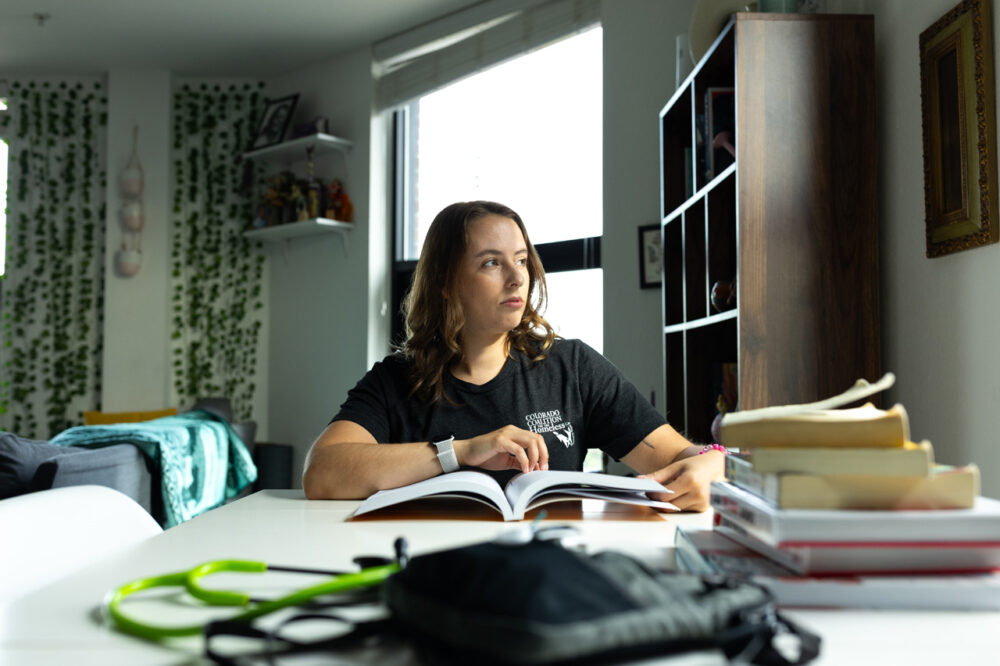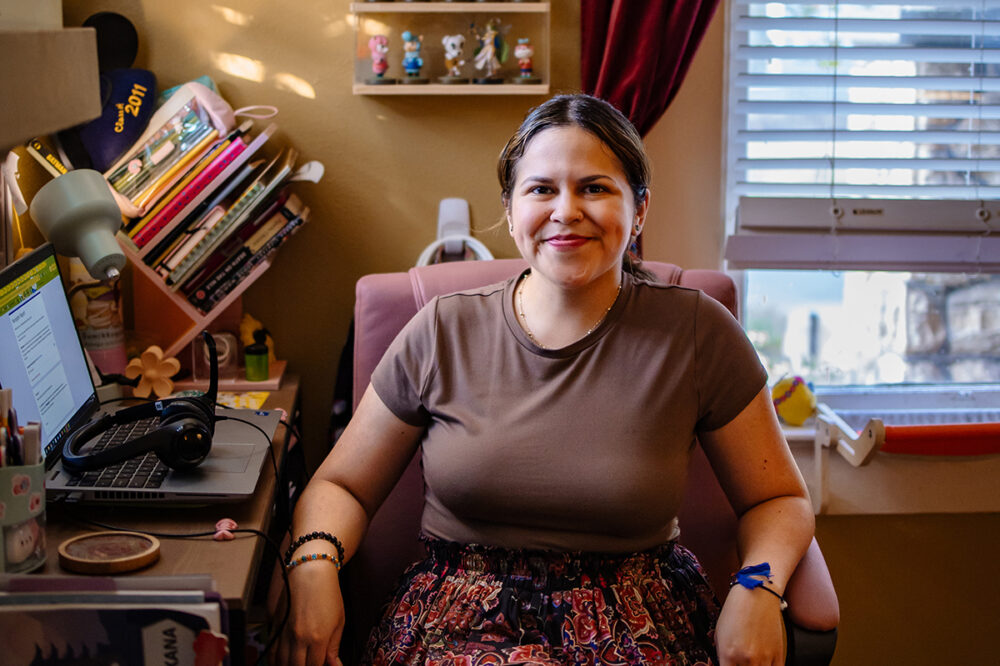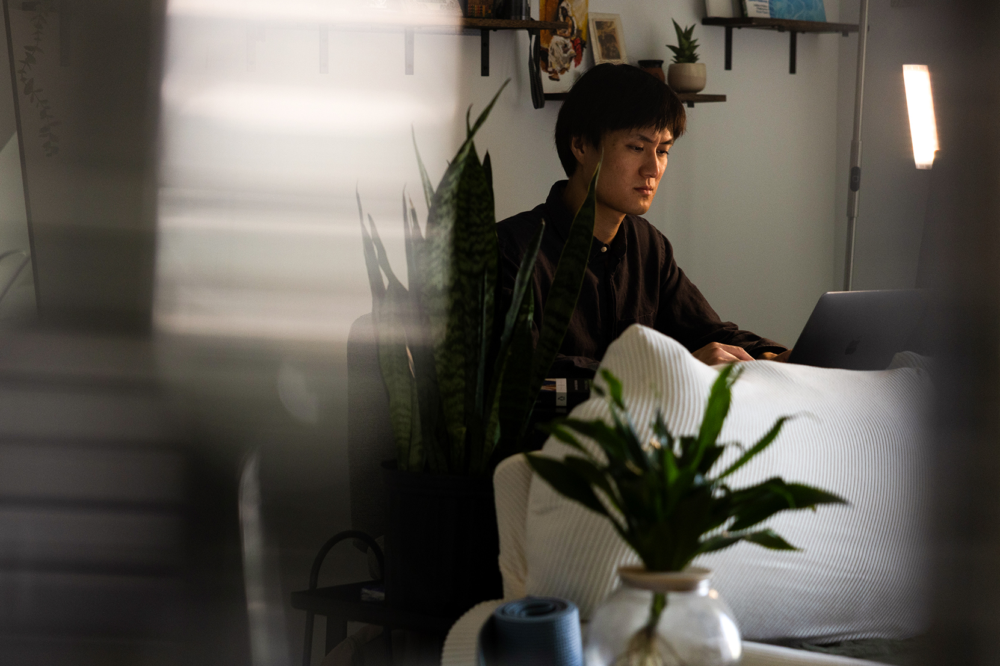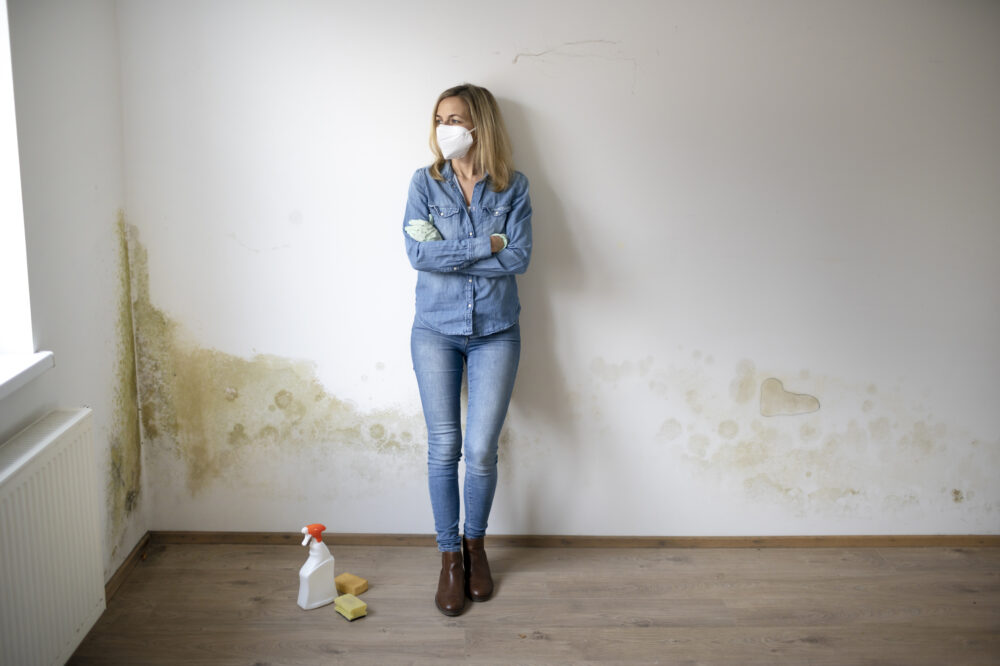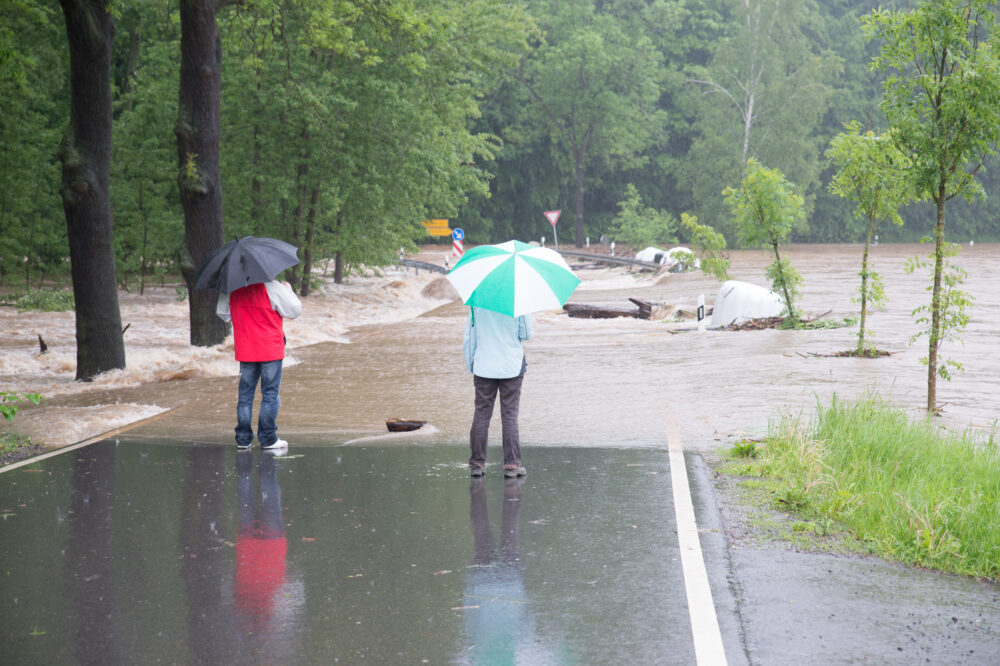Rebuilding Without Renters Insurance: Rob’s Story
After a movie-like getaway, Rob lost his car, home, and work equipment to the LA wildfires. Weeks later, another family tragedy hit.
By Financial Health Network
-
Category:
-
Tags:
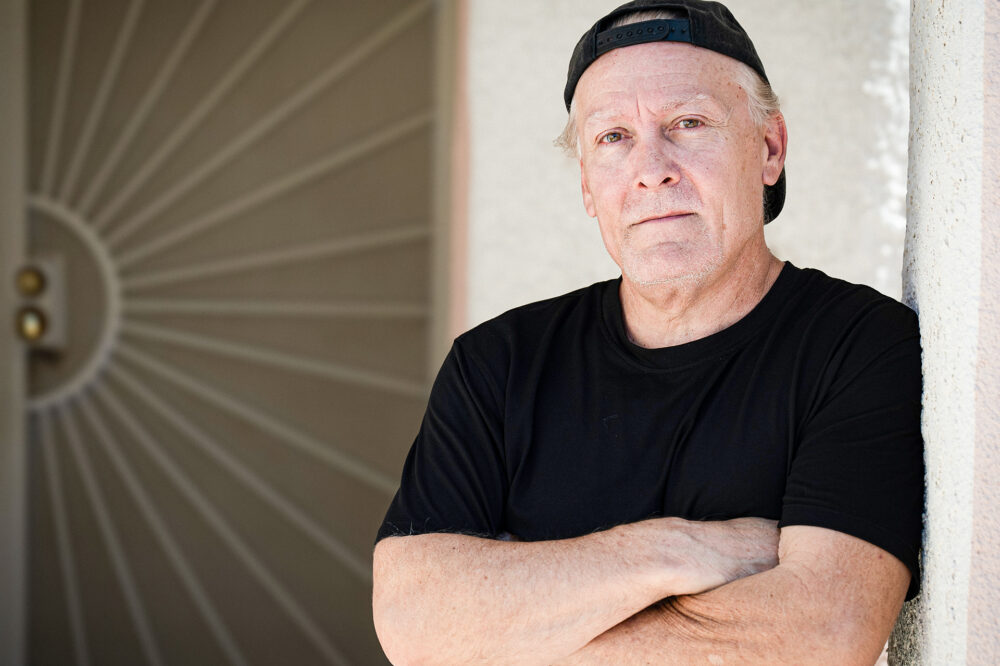
When Rob Ingersoll, now 60, first moved to Los Angeles decades ago, he was eager to pursue a career in acting. He spent years working in the movie business. As acting work dried up, Rob launched his own deejaying company that kept him involved in LA’s entertainment industry.
The lifelong renter spent time living on the beach in Los Angeles before settling in Pacific Palisades, a secluded hillside neighborhood known for its small-town charm. After leaving a rent-controlled apartment, Rob found another opportunity: renting a discounted guesthouse in exchange for watching the owner’s dogs, who lived in the main house next door. Though the area was deemed high-risk by insurers and he could not find rental coverage, it was the ideal, quintessentially LA setup – until his life changed.
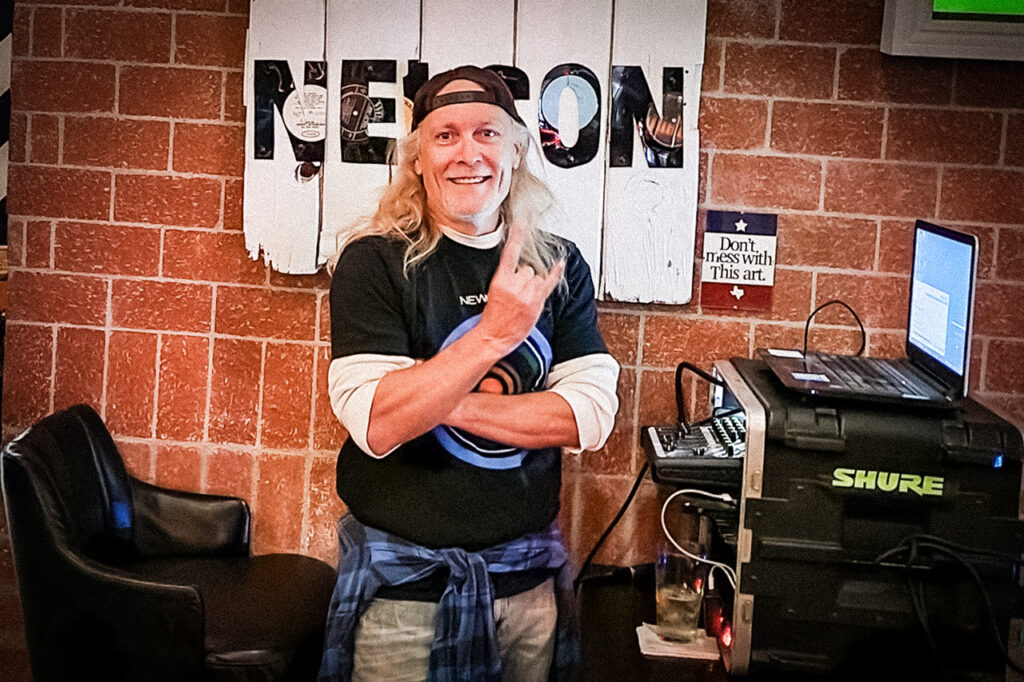
For Rob, losing his home also meant losing the equipment for his deejaying business.
When the wildfires started, Rob didn’t grasp the severity at first. It wasn’t until the last few hours before evacuating that he realized the danger of the escalating situation. With one packed bag and a lifetime of mementos left behind, Rob made it out of the fire. His home was not as fortunate.
As one of 22 million households in the U.S. without renter’s insurance, Rob was only able to collect money from the Federal Emergency Management Agency (FEMA). According to Rob, the payout doesn’t begin to cover the cost of what he lost.
Then, just weeks later, another blow: Rob’s father passed away. While the grief added to his sense of loss, his father’s life insurance policy became an unexpected financial lifeline.
Here’s his story.
I was born in upstate New York and went to Los Angeles when I was 19 years old on a vacation and fell in love, because it was the 80s. I got an apartment on the beach and never left. I lived in a rent-controlled apartment in Santa Monica until 2010, when a friend of mine offered me a great deal on a house in the Palisades, so I’ve lived there ever since.
The Palisades were probably the greatest place you could ever want to live. It was very family-oriented. Recently, there was a lot of new construction where people were coming in and all the old houses were just being bought up, torn down, and rebuilt. It has a small-town feel in a giant city.
My rental was a guest house near the homeowner’s pool. Their dogs would come in and hang out with me – one of the dogs was 180 pounds. People were calling me the Palisades Dog Whisperer, so if somebody had a dog that wouldn’t obey or behave properly, they would ask me to help.
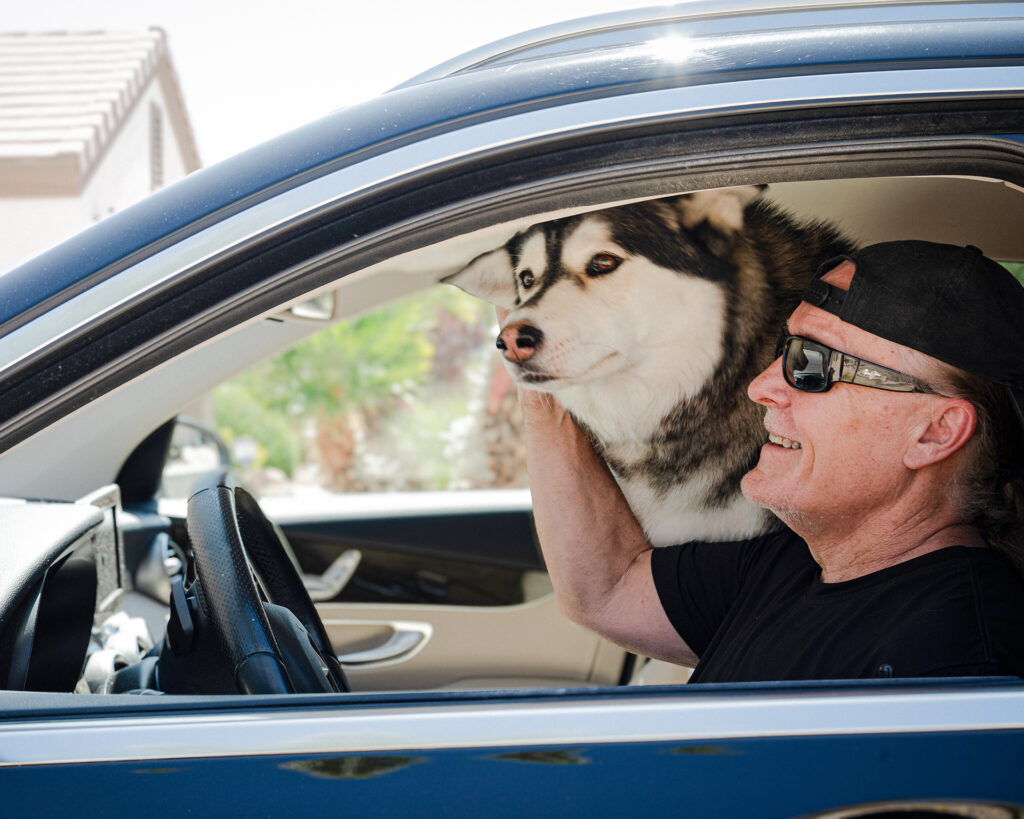
Rob with his recently adopted Alaskan husky. As a dog lover, Rob got a discount on rent in exchange for caring for the owner’s dogs.
The day of the fire, I walked out the door to drink my morning coffee outside, like I do most days. I realized I smelled smoke. So I turned the corner and looked behind the Palisades. I took a photo and sent it to the owner. Most people weren’t worried. But then the phone started going crazy with that horrible alert sound. I helped the family because we had to load the dogs.
I packed a few days’ worth of clothes, thinking that I would be back. I grabbed my toothbrush and stuff and put it in the car. I went outside, and I’m like, ‘Wow, I got to get out of here.’ I literally had some shorts, some T-shirts, jeans, and pretty much that’s it.
-
As fire engulfed the Palisades neighborhood, Rob soon realized the severity of the blaze.

-
Smoke billowing from homes nearby as Rob started to flee.
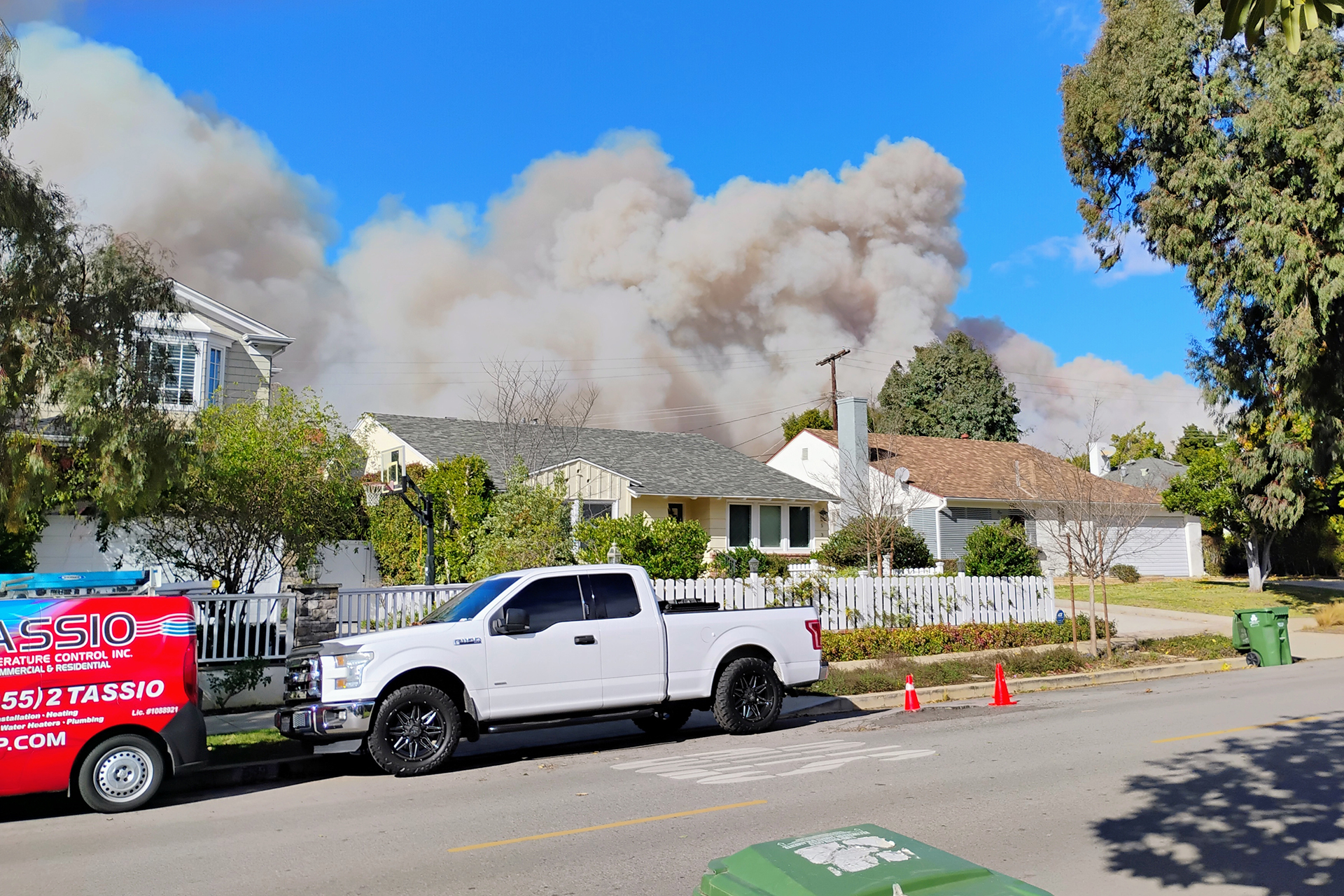
-
Rob’s view as he evacuated shortly before his home burned. “Afterward, you really are just in shock,” he says.
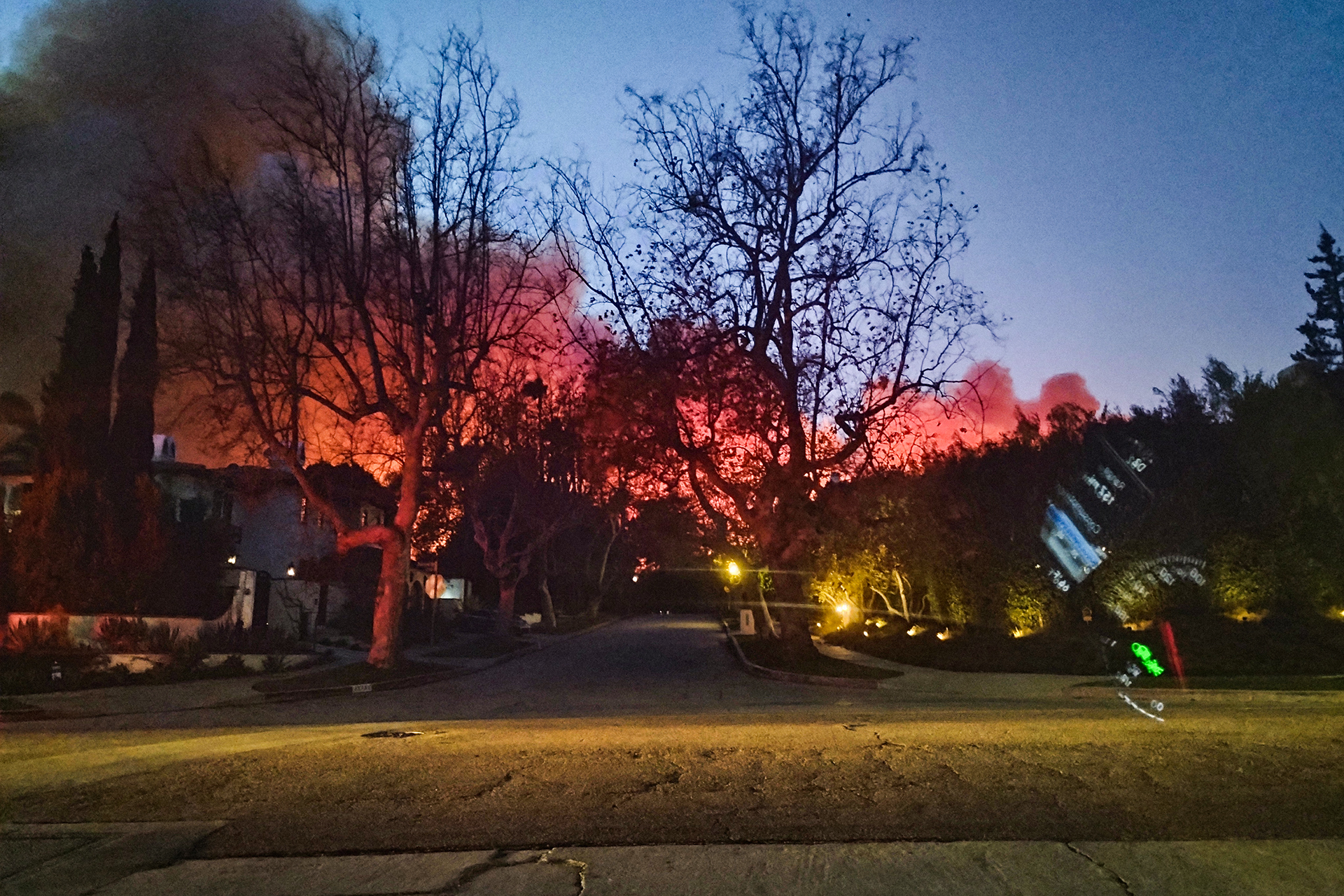
I had to drive out like it was a movie. There’s just smoke everywhere and little fire tornadoes. The wind was blowing like I’ve never felt before.
When I got down to the corner, I stopped the car and realized this is life-changing. I said, ‘Tomorrow, all of this is going to be gone.’
Afterward, you really are just in shock. For my business, I lost about 5,000 karaoke CDs, PA systems, speakers, and mixing boards. I started the company in 1991, and over the decades, I’ve bought thousands of CDs. Personal things, too. My mom passed away and put together a nice book of photos, and I lost that. All my collectibles I lost, including a Michael Jordan card…. I’ve seen that card for sale for half a million dollars. That one hurt.
-
Rob’s 1998 Hummer H1, which had skyrocketed in value since he purchased it years ago.
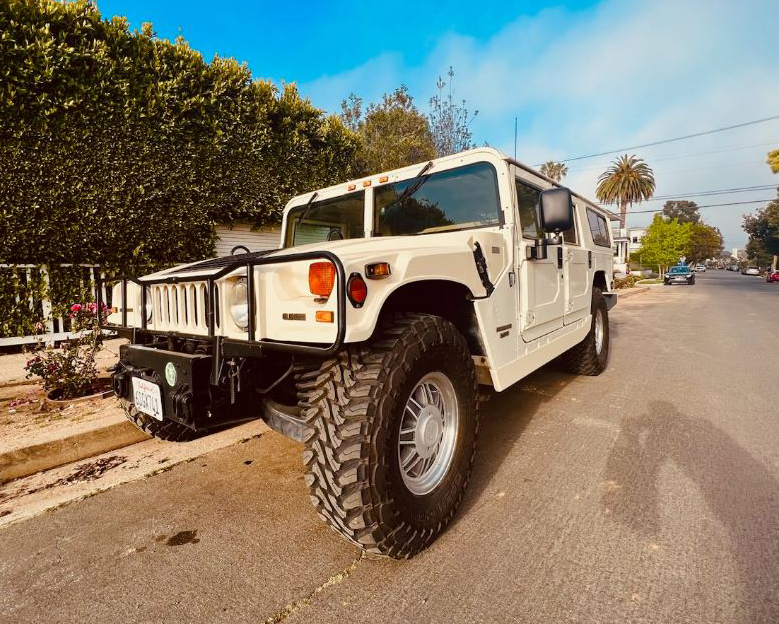
-
Post-fire, Rob’s Hummer was reduced to ashes. “The fire was crazy hot,” he says.
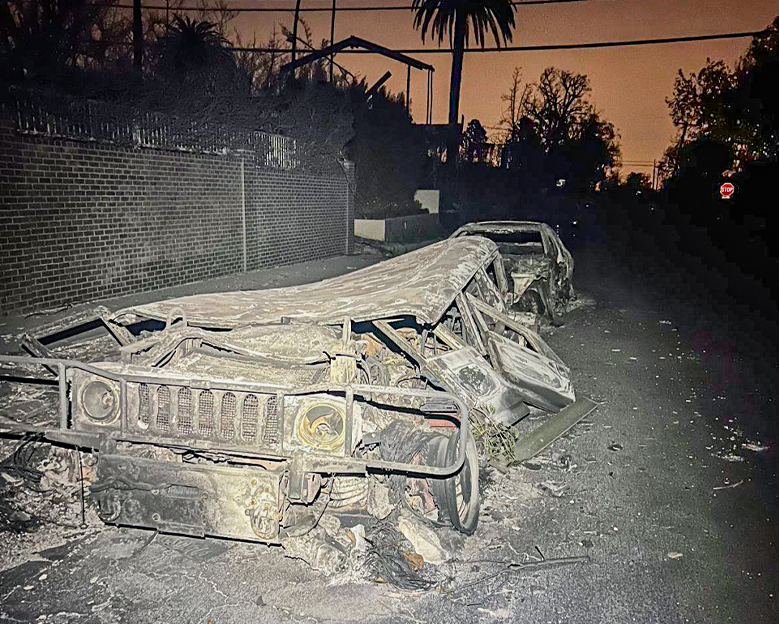
I had no place to live. I went to an Airbnb because I still didn’t know what I was doing. My dad was like, ‘Well, come live here.’ So I went to Henderson, Nevada.
When I got here, my dad got sick and passed away a month later. I’m still in Nevada, taking care of his affairs. Now I’ve got to take care of all of that stuff on top of my stuff. So yeah, it’s been a little stressful.
“It’s very emotionally testing and it’s draining. Very draining.”
I could not get renters insurance. I had renters insurance when I lived in Santa Monica, California, but when I moved up to the Palisades, I could not get it. The companies just don’t want to cover the Palisades. And that was 2010. At that point, I never thought that I would need it. I tried to get it from a couple different places, but nobody would give me rental insurance.
I’m still fighting with FEMA. I’m challenging the amount that they gave me because the amount that they gave me is ridiculously low. Some GoFundMe money was helping.
The system totally failed people like me. I called the mayor’s office. I said, ‘What are we going to do?’ I’ve got no place to stay. I’m staying at friends’ and I’m wearing out my welcome. Where am I going? They just kind of push it off to everybody else.
My dad had life insurance policies and stuff like that. So I’m okay for now. But I have to figure out if I’m going to move back and whether my gigs are still going to be there.
“To this day, something will pop up that I used to have, and then I remember it was burned.”
-
After the passing of his father, Rob is still sorting out his father's affairs in Henderson, Nevada, and contemplating a return to Los Angeles.
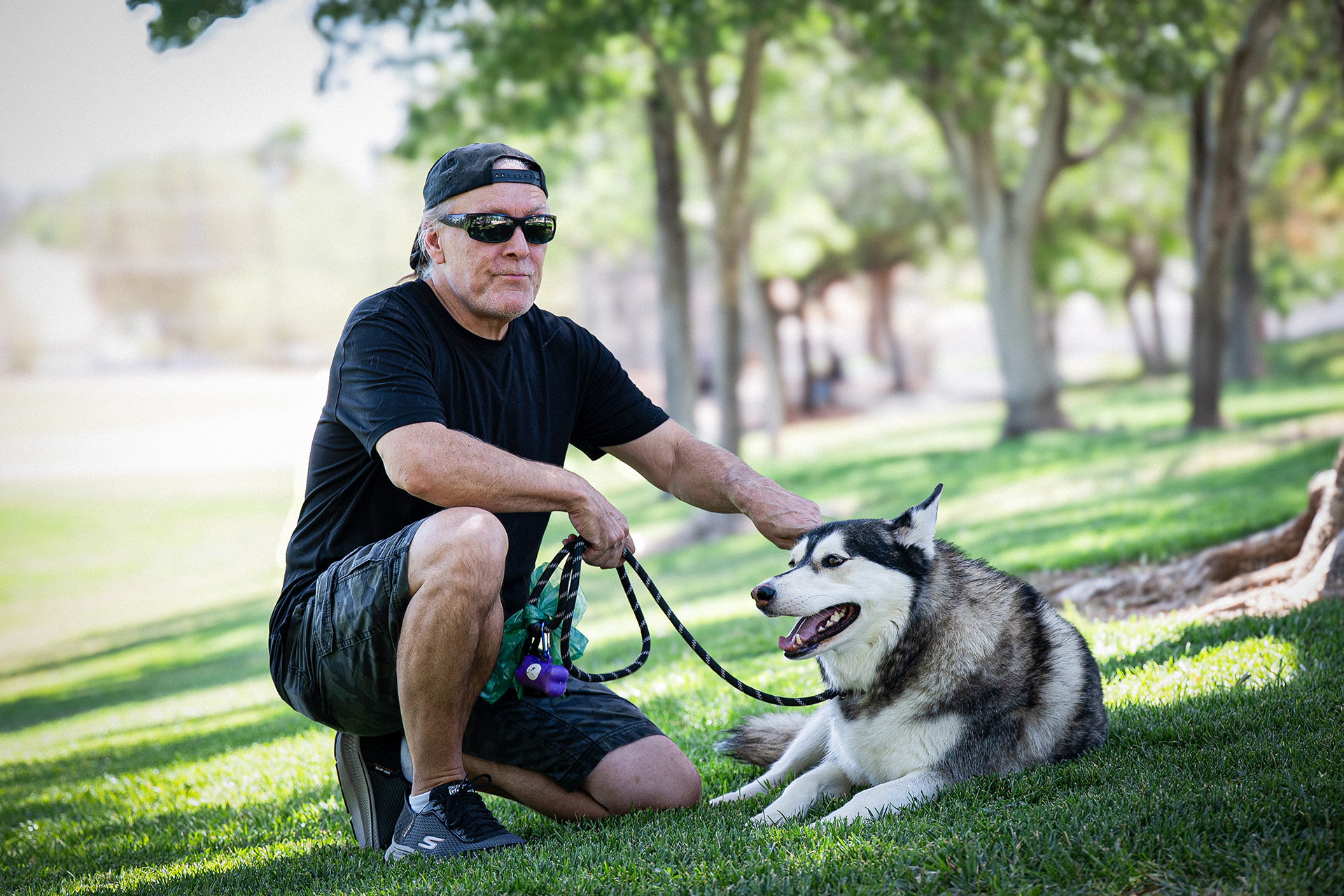
Rob is one of many people in America facing difficult choices due to the growing aftermath of extreme weather events. Research has shown that renters are especially vulnerable to financial shocks from climate events: They receive less government assistance, are displaced more frequently and for longer, and suffer more severe negative impacts from extreme weather than homeowners.
For Rob, losing his home also meant the collapse of his livelihood. The LA wildfires devastated his earnings only a few years before he was due to hit retirement age. His lack of renters insurance magnified the financial fallout, since he wasn’t able to recoup what he lost – including the equipment and housing arrangement that supported his freelance work.
Rob is not alone. Renter exclusions have become a challenging reality in some parts of the country deemed high-risk zones due to weather disasters and aging infrastructure. The average FEMA disaster assistance grant was $3,000 between 2016 and 2022, compared with renters insurance policies that often provide much larger payouts. That lack of financial assistance can be especially challenging for older adults, who have less time to rebuild savings before retirement.
Today, Rob is still dealing with FEMA as he tries to secure additional funding, including help with a security deposit. While he’s managing for now, his experience highlights just how much time and effort it takes to rebuild after a disaster. As individuals like Rob reckon with FEMA and the lack of insurance, there is opportunity for the insurance industry to expand protections for the next inevitable natural disaster, including more accessible insurance products like parametric insurance. Providing targeted support can help renters like Rob build financial resilience and recover more quickly.
Read more personal accounts here, and explore approaches that can help families build financial resilience in the face of natural disasters.
Share Your Story With Us
Our Human Stories spotlight the real-life experiences of people navigating disaster recovery, disability, career transitions, multigenerational living, and more – bringing fresh urgency to the financial challenges facing Americans today. Have a story to share? We’d love to hear from you.
Read More Human Stories
From Poverty to a College Degree: Angel’s Story
Without a financial safety net, one college graduate’s journey to a diploma was paved with setbacks and plenty of resolve.
Still Striving for Financial Independence: Becky’s Story
Entering adulthood has come with ‘curveballs’ that her parents never faced, and an increasingly uneven playing field to catch up.
600 Job Applications, No Offers: Zerui’s Story
After earning his master’s with honors last year, Zerui is getting by on low-wage work while he continues to apply for jobs. Still, he remains hopeful.
Explore More on Climate
Climate Disaster and Renters Insurance: Who’s Protected?
A new FinHealth Spend Spotlight finds many renters don’t hold renters insurance – and those who do still face climate-related risks.
Strengthening Financial Health for Climate Resilience
Climate hazards have massive financial impacts on households, especially ones that are already struggling. What do they need to be financially resilient in the face of a changing climate?
Exploring the Link Between Housing and Healthcare Costs and Weather Events
Households that experienced a weather event were also more likely to face a range of unexpected housing- and health-related expenses.
